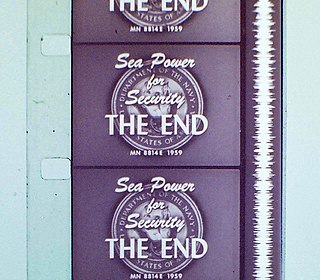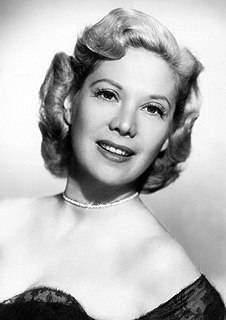Related Research Articles
The RCA Corporation was a major American electronics company, which was founded as the Radio Corporation of America in 1919. It was initially a patent trust owned by General Electric (GE), Westinghouse, AT&T Corporation and United Fruit Company. In 1932, RCA became an independent company after the partners were required to divest their ownership as part of the settlement of a government antitrust suit.

A soundtrack is recorded music accompanying and synchronised to the images of a motion picture, drama, book, television program, radio program, or video game; a commercially released soundtrack album of music as featured in the soundtrack of a film, video, or television presentation; or the physical area of a film that contains the synchronised recorded sound.

Clarence Charles "Ducky" Nash was an American voice actor. He was best known as the original voice of the Disney cartoon character Donald Duck. He was born in the rural community of Watonga, Oklahoma, and a street in that town is named in his honor. In 1993, he was posthumously made a Disney Legend for his contributions to Walt Disney films.

In music, a single is a type of release, typically a song recording of fewer tracks than an LP record or an album. This can be released for sale to the public in a variety of formats. In most cases, a single is a song that is released separately from an album, although it usually also appears on an album. Typically, these are the songs from albums that are released separately for promotional uses such as digital download, or video release. In other cases a recording released as a single may not appear on an album.

The A-side and B-side are the two sides of phonograph records and cassettes; these terms have often been printed on the labels of two-sided music recordings. The A-side usually features a recording that its artist, producer, or record company intends to be the initial focus of promotional efforts and radio airplay and hopefully become a hit record. The B-side is a secondary recording that typically receives less attention, although some B-sides have been as successful as, or more so than, their A-sides.

An extended play record, usually referred to as an EP, is a musical recording that contains more tracks than a single but fewer than an album or LP record. Contemporary EPs generally contain four or five tracks, and are considered "less expensive and time-consuming" for an artist to produce than an album. An EP originally referred to specific types of records other than 78 rpm standard play (SP) and LP, but it is now applied to mid-length CDs and downloads as well.

A phonograph disc record, or simply a phonograph record, gramophone record, disc record, long-playing record, or record, is an analog sound storage medium in the form of a flat disc with an inscribed, modulated spiral groove. The groove usually starts near the periphery and ends near the center of the disc. At first, the discs were commonly made from shellac, with earlier records having a fine abrasive filler mixed in. Starting in the 1940s polyvinyl chloride became common, hence the name "vinyl". In the mid-2000s, gradually, records made of any material began to be called vinyl disc records, also known as vinyl records or vinyl for short.
RCA Records is an American record label currently owned by Sony Music Entertainment, a subsidiary of Sony Corporation of America. It is one of Sony Music's four flagship labels, alongside RCA's former long-time rival Columbia Records; also Arista Records, and Epic Records. The label has released multiple genres of music, including pop, classical, rock, hip hop, afrobeat, electronic, R&B, blues, jazz, and country. Its name is derived from the initials of its defunct parent company, the Radio Corporation of America (RCA). RCA Records was fully acquired by Bertelsmann in 1987, making it a part of Bertelsmann Music Group (BMG) and became a part of Sony BMG Music Entertainment after the 2004 merger of BMG and Sony; it was acquired by the latter in 2008, after the dissolution of Sony/BMG and the restructuring of Sony Music. RCA Records is the corporate successor of the Victor Talking Machine Company, making it the second-oldest record label in American history, after sister label Columbia Records.

MGM Records was a record label founded by the Metro-Goldwyn-Mayer film studio in 1946 for the purpose of releasing soundtrack recordings of their musical films. It transitioned into a pop music label that continued into the 1970s. The company also released soundtrack albums of the music for some of their non-musical films as well, and on rare occasions, cast albums of off-Broadway musicals such as The Fantasticks and the 1954 revival of The Threepenny Opera. In one instance, it released the highly successful soundtrack album of a film made by another studio, Columbia Pictures's Born Free (1966).

Dinah Shore was an American singer, actress, and television personality, and the top-charting female vocalist of the 1940s. She rose to prominence as a recording artist during the Big Band era. She achieved even greater success a decade later, in television, mainly as the host of a series of variety programs for the Chevrolet automobile company.
A cast recording is a recording of a stage musical that is intended to document the songs as they were performed in the show and experienced by the audience. An original cast recording or OCR, as the name implies, features the voices of the show's original cast. A cast recording featuring the first cast to perform a musical in a particular venue is known, for example, as an "original Broadway cast recording" (OBCR) or an "original London cast recording" (OLCR).
Children's music or kids' music is music composed and performed for children. In European-influenced contexts this means music, usually songs, written specifically for a juvenile audience. The composers are usually adults. Children's music has historically held both entertainment and educational functions. Children's music is often designed to provide an entertaining means of teaching children about their culture, other cultures, good behavior, facts and skills. Many are folk songs, but there is a whole genre of educational music that has become increasingly popular.
"Bibbidi-Bobbidi-Boo" is a novelty song, written in 1948 by Al Hoffman, Mack David, and Jerry Livingston. Introduced in the 1950 film Cinderella, and performed by actress Verna Felton, the song is about the Fairy Godmother transforming an orange pumpkin into a white carriage, four brown mice into white horses, a gray horse into a white-haired coachman, and a brown dog into a white-haired footman. The song was nominated for the Academy Award for Best Original Song in 1951 but lost out to "Mona Lisa" from Captain Carey, U.S.A. Disney used the song once again in their 2015 remake of Cinderella which starred Lily James in the leading role. The song was performed by Helena Bonham Carter, who plays Fairy Godmother, and was the final song of the movie, playing with the end credits. Bonham Carter's version can also be found as the 30th song on the original movie soundtrack.
A soundtrack album is any album that incorporates music directly recorded from the soundtrack of a particular feature film or television show. The first such album to be commercially released was Walt Disney's Snow White and the Seven Dwarfs, the soundtrack to the film of the same name, in 1938. The first soundtrack album of a film's orchestral score was that for Alexander Korda's 1942 film Rudyard Kipling's Jungle Book, composed by Miklós Rózsa.
Frank Luther was an American country music singer, dance band vocalist, playwright, songwriter and pianist.
RCA Camden was a budget record label of RCA Victor, originally created in 1953 to reissue recordings from earlier 78rpm releases. The label was named "Camden", after Camden, New Jersey where the offices, factories and studios of RCA Victor and its predecessor, the Victor Talking Machine Company had been located since 1901.

Pinocchio is the soundtrack to the 1940 Walt Disney film of the same name, first released on February 9, 1940. The album was described as being "recorded from the original soundtrack of the Walt Disney Production Pinocchio". According to Walt Disney Records, "this is the first time the phrase 'original soundtrack' was used to refer to a commercially available movie recording."
The term studio recording means any recording made in a studio, as opposed to a live recording, which is usually made in a concert venue or a theatre, with an audience attending the performance.
A spoken word album is a recording of spoken material, a predecessor of the contemporary audiobook genre. Rather than featuring music or songs, the content of spoken word albums include political speeches, dramatic readings of historical documents, dialogue from a film soundtrack, dramatized versions of literary classics, stories for children, comedic material, and instructional recordings. The Grammy for Best Spoken Word Album has been awarded annually since 1959.

Favorite Hawaiian Songs, Volume Two is a compilation album of phonograph records by Bing Crosby released in 1946 featuring songs that were sung in a Hawaiian-type genre. This was the fifth Hawaiian-themed album release for Crosby.